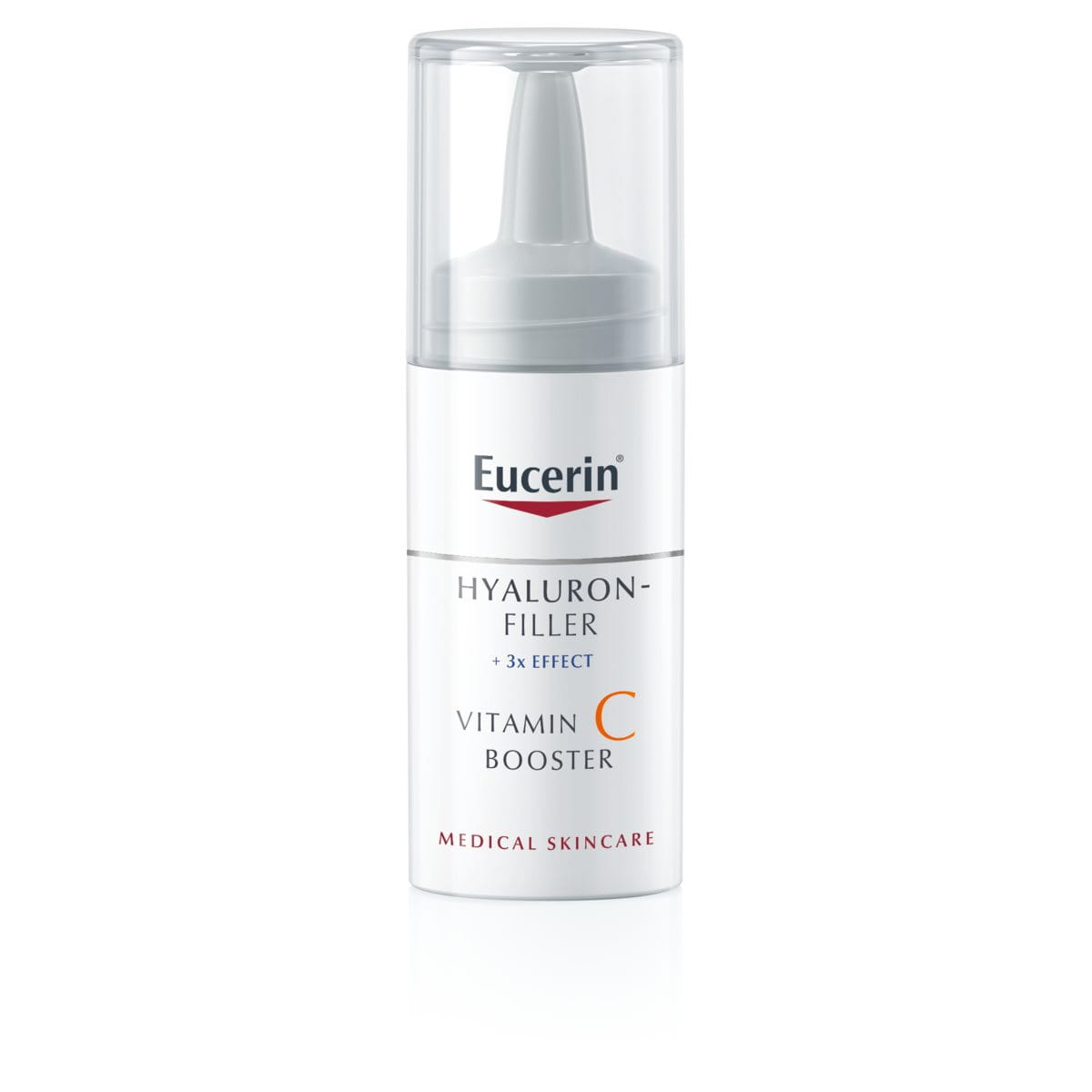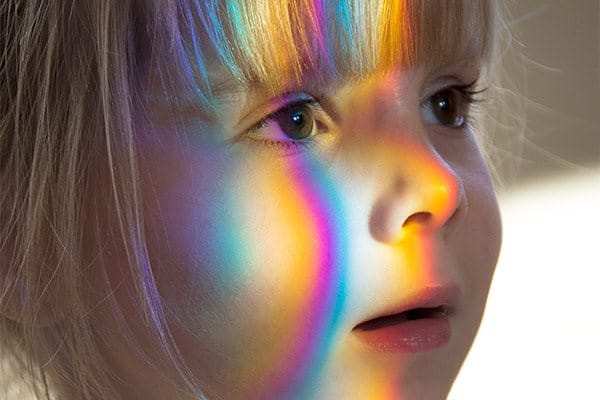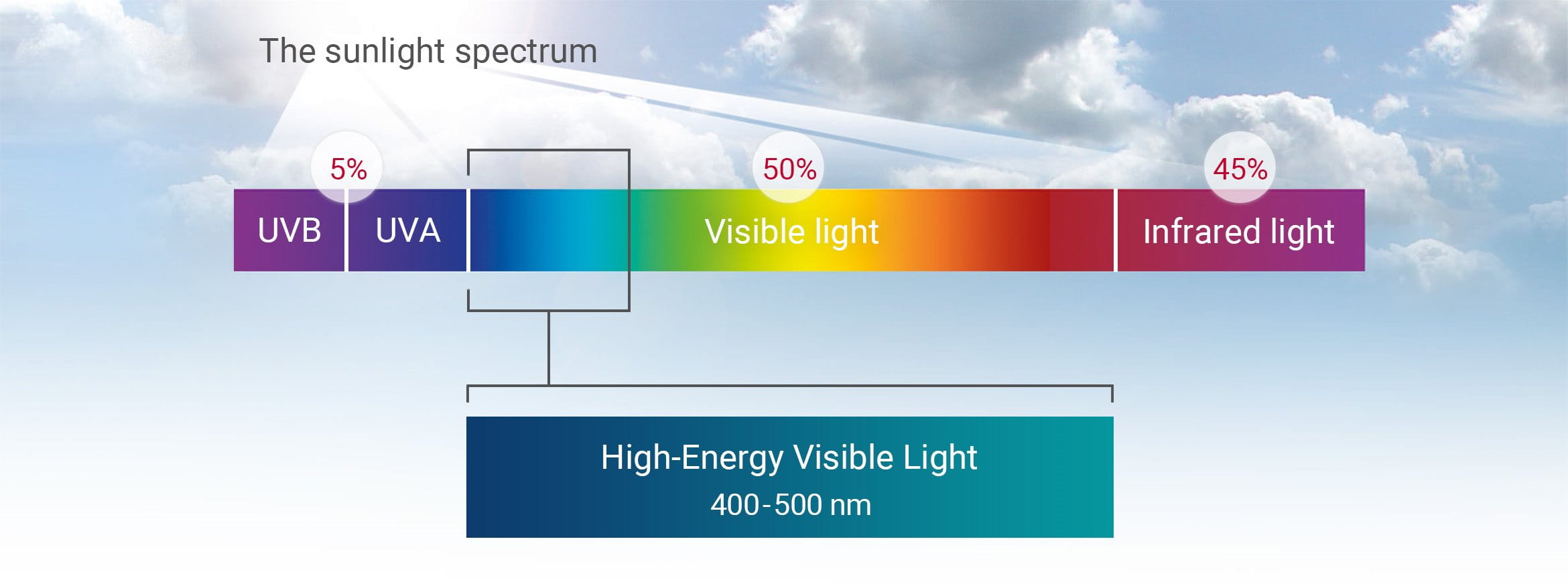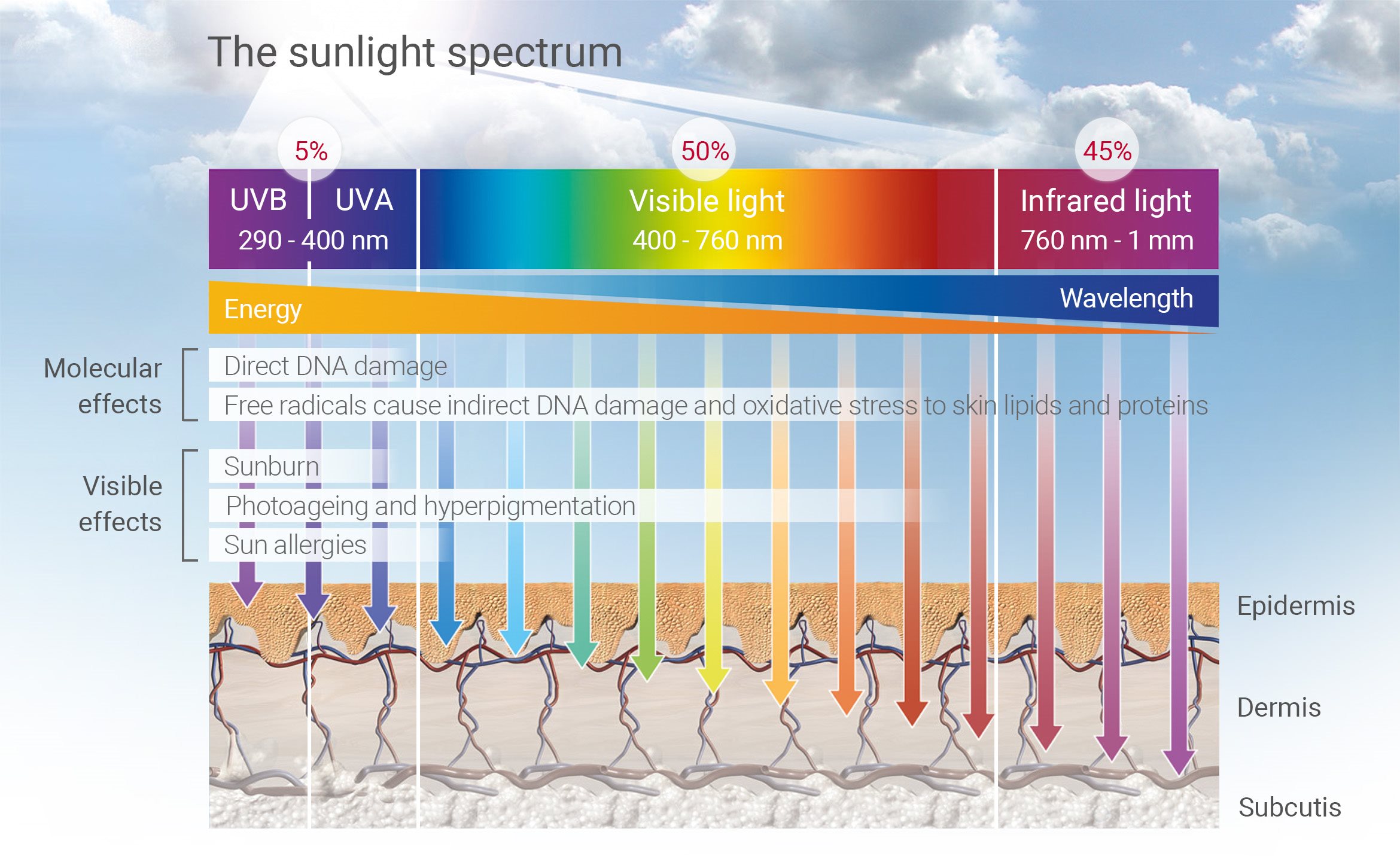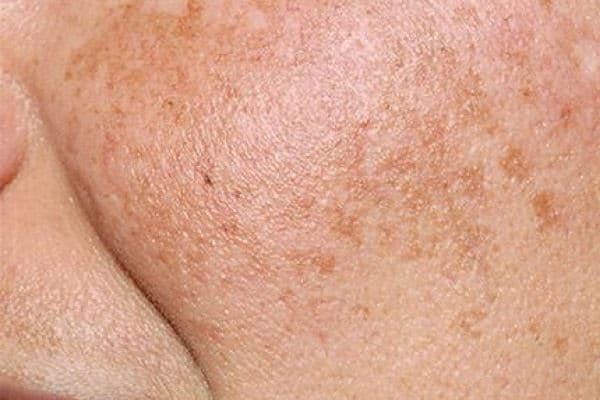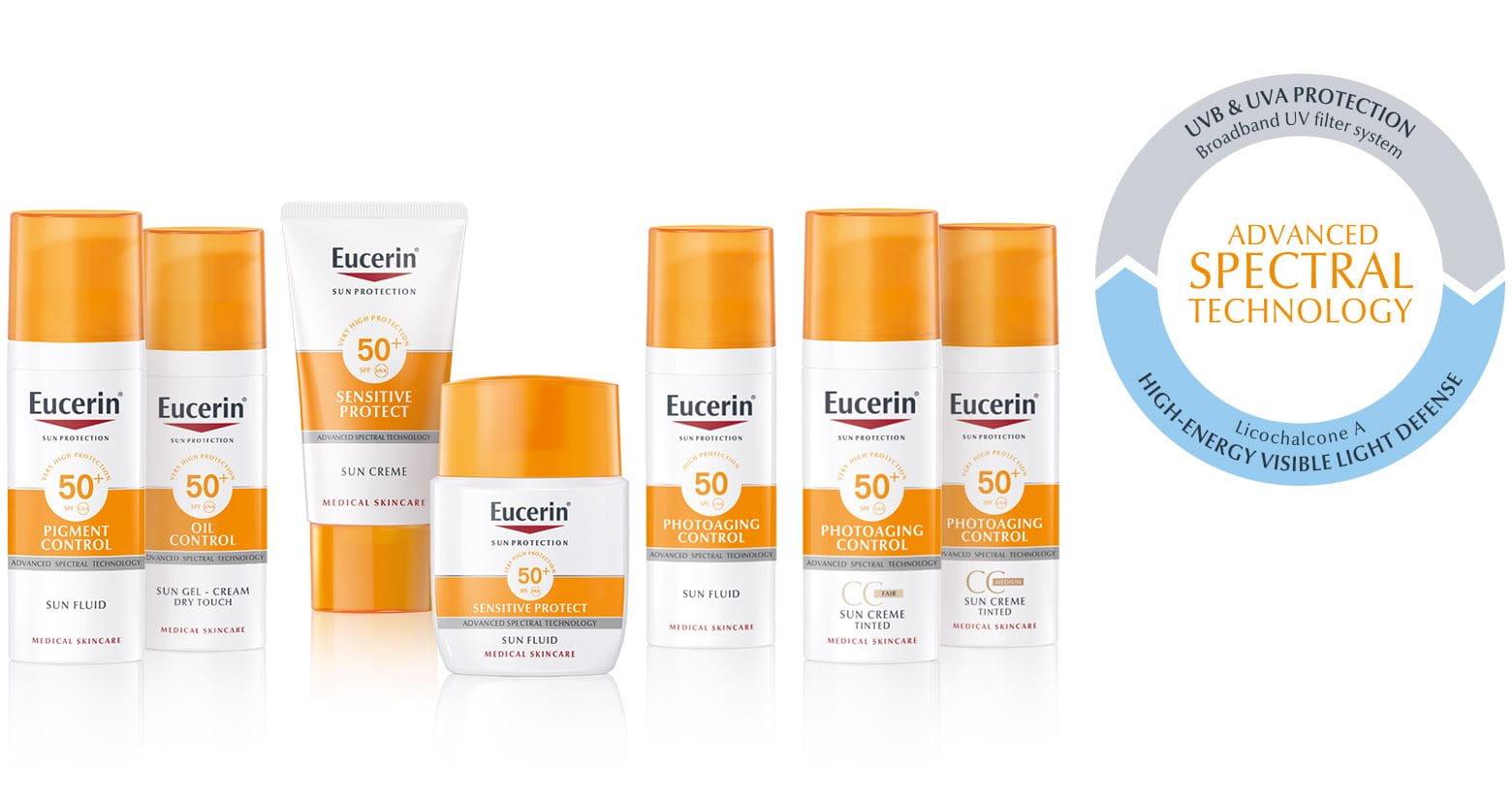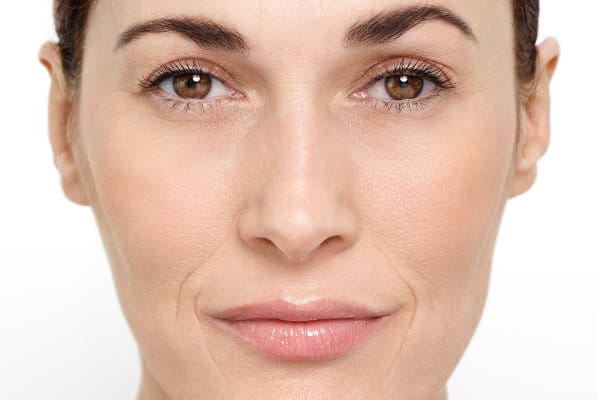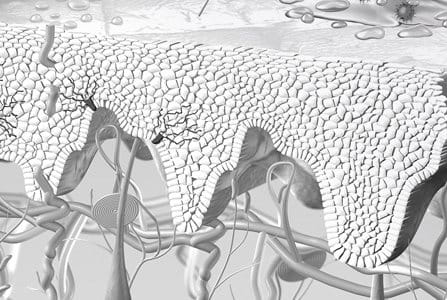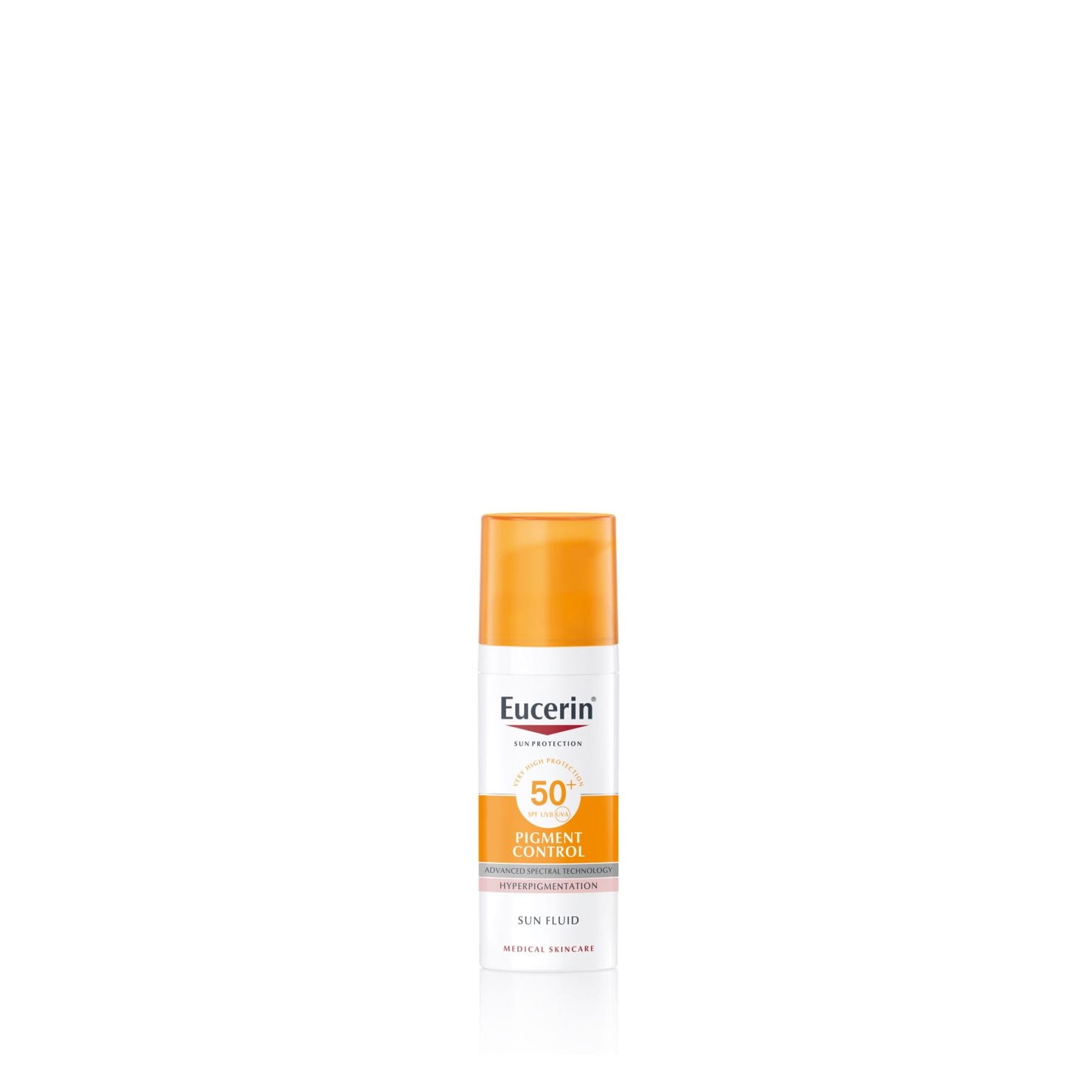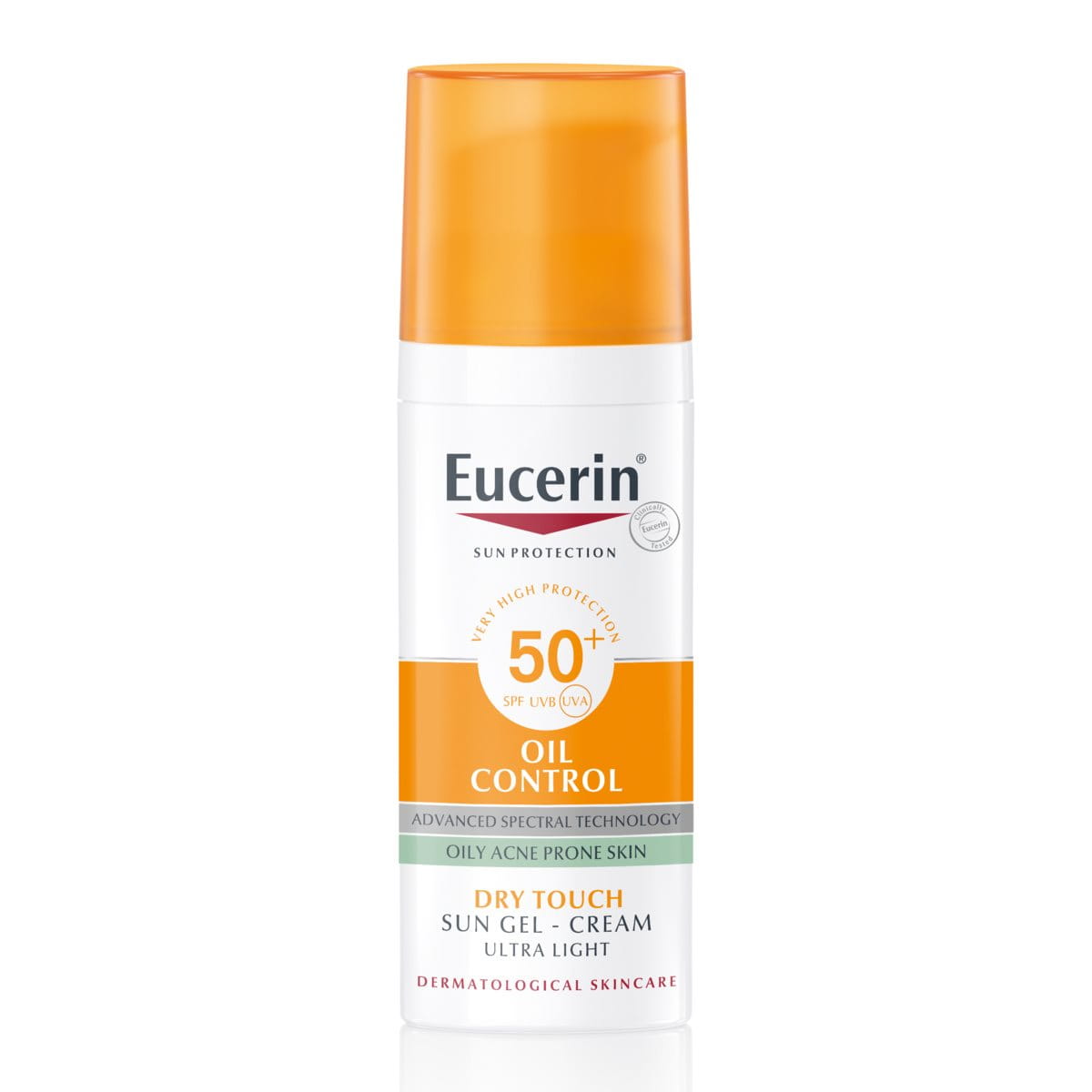It’s important to remember that the sun’s rays affect your skin even when the weather is cloudy and overcast. Sun care should not be restricted to those days when the sun is at its hottest, but should form part of your daily skincare routine.
Many modern sunscreens offer effective protection against UVA and UVB rays, but the chemicals and pigments used to filter UVA and UVB do not filter HEVISIS light. For this reason, we recommend that you look out for products that contain antioxidants that work against oxidative stress. When choosing appropriate suncare products, the priority is still to give your skin the very best protection against UVA and UVB rays, but choosing products that also combat the oxidative stress caused also by HEVIS Light will further help to prevent photoageing and reduce instances of hyperpigmentation. Antioxidants Licochalcone A and Glycyrrhetinic Acid have been proven to work together to protect skin cells in the deeper epidermal layers from sun-induced damage.
Eucerin Sun products offer comprehensive protection against sun-induced skin damage. The innovative Advanced Spectral Technology combines broadband and photostable UVA/UVB filters1 for outstanding UV protection with antioxidant Licochalcone A for high-energy visible (HEVIS) light defense. Most of the products also contain Glycyrrhetinic Acid for additional DNA protection.
If aging is your primary skin concern try Eucerin Sun Fluid Photoaging Control SPF 50 or SPF 30 and Eucerin Sun Creme Tinted Photoaging Control SPF 50+ Fair or Medium for your face and Eucerin Sun Lotion Extra Light Photoaging Control SPF 50+ or SPF 30 for your body. These products combine Advanced Spectral Technology with Licochalcone A, Glycyrrhetinic Acid and Hyaluronic Acid which visibly reduces signs of aging. The tinted products also contain color pigments that instantly unify the complexion.
If hyperpigmentation on your face is your primary skin concern try Eucerin Sun Fluid Pigment Control SPF 50+ In addition to Eucerin’s Advanced Spectral Technology it contains Glycyrrhetinic Acid (to support skin’s own DNA repair mechanism) and Thiamidol.
While prevention is best, once you have pigment spots Thiamidol is clinically and dermatologically proven to reduce dark spots and prevent their re-appearance.
1 Meeting the highest standards for UVA and UVB protection as defined by Cosmetics Europe. The levels of UVA protection are higher than the EU requirement.


